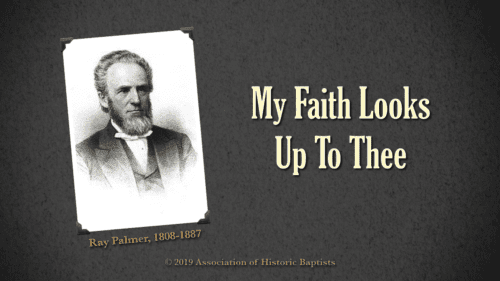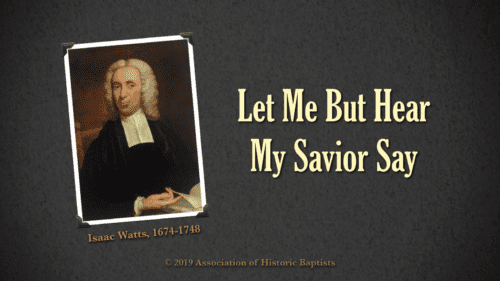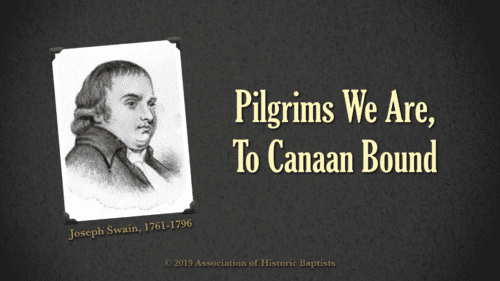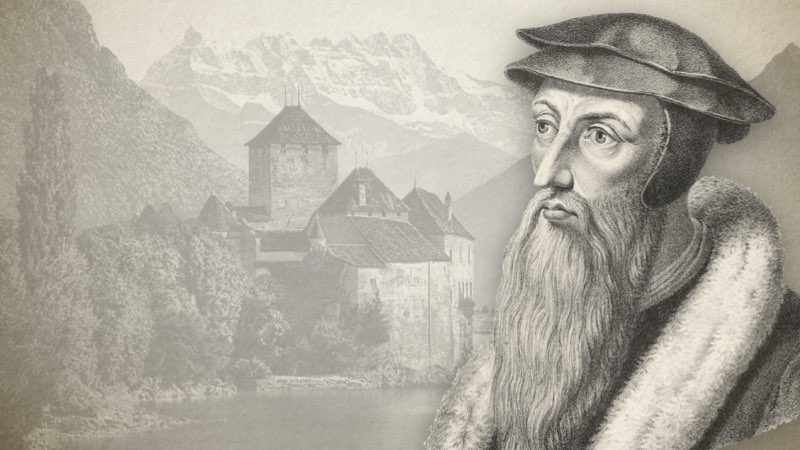-
When All Thy Mercies, O My God
Psalm 37:23-28: "The steps of a good man are ordered by the LORD: and he delighteth in his way. Though he fall, he shall not be utterly cast down: for the LORD upholdeth him with his hand. I have been young, and now am old; yet have I not seen the righteous forsaken, nor his seed begging bread. He is ever merciful, and lendeth; and his seed is blessed. Depart from evil, and do good; and dwell for evermore. For the LORD loveth judgment, and forsaketh not his saints; they are preserved for ever: but the seed of the wicked shall be cut off."
-
The Potter’s House
The word which came to Jeremiah from the LORD, saying, Arise, and go down to the potter’s house, and there I will cause thee to hear my words. Then I went down to the potter’s house, and, behold, he wrought a work on the wheels. And the vessel that he made of clay was marred in the hand of the potter: so he made it again another vessel, as seemed good to the potter to make it. Then the word of the LORD came to me, saying, O house of Israel, cannot I do with you as this potter? saith the LORD. Behold, as the clay is in the potter’s hand, so are ye in mine hand, O house of Israel.’ Jeremiah 18:1-6 God sent…
-
Book 1: Chapter 16, The World, Created By God, Still Cherished And Protected By Him. Each And All Of Its Parts Governed By His Providence
The divisions of this chapter are, I. The doctrine of the special providence of God over all the creatures, singly and collectively, as opposed to the dreams of the Epicureans about fortune and fortuitous causes. II. The fiction of the Sophists concerning the omnipotence of God, and the error of philosophers, as to a confused and equivocal government of the world, sec. 1-5. All animals, but especially mankind, from the peculiar superintendence exercised over them, are proofs, evidences, and examples of the providence of God, sec. 6, 7. III. A consideration of fate, fortune, chance, contingence, and uncertain events (on which the matter here under discussion turns). Sections. 1. Even the wicked, under the guidance of carnal sense, acknowledge that God is the Creator. The…
-
Book 1: Chapter 17, Use To Be Made Of The Doctrine Of Providence
This chapter may be conveniently divided into two parts:—I. A general explanation is given of the doctrine of Divine Providence, in so far as conducive to the solid instruction and consolation of the godly, sect. 1, and specially sect. 2-12. First, however, those are refuted who deny that the world is governed by the secret and incomprehensible counsel of God; those also who throw the blame of all wickedness upon God, and absurdly pretend that exercises of piety are useless, sect. 2-5. Thereafter is added a holy meditation on Divine Providence, which, in the case of prosperity, is painted to the life, sect. 6-11. II. A solution of two objections from passages of Scripture, which attribute repentance to God, and speak of something like an…
-
Book 1: Chapter 18, The Instrumentality Of The Wicked Employed By God, While He Continues Free From Every Taint
This chapter may be conveniently divided into two parts:—I. A general explanation is given of the doctrine of Divine Providence, in so far as conducive to the solid instruction and consolation of the godly, sect. 1, and specially sect. 2-12. First, however, those are refuted who deny that the world is governed by the secret and incomprehensible counsel of God; those also who throw the blame of all wickedness upon God, and absurdly pretend that exercises of piety are useless, sect. 2-5. Thereafter is added a holy meditation on Divine Providence, which, in the case of prosperity, is painted to the life, sect. 6-11. II. A solution of two objections from passages of Scripture, which attribute repentance to God, and speak of something like an…
-
Ten Marks Of Distinguishing Grace
The Word of God everywhere speaks of grace as distinguishing, discriminating and particular. Grace is never general, common or indefinite. Here are ten clear examples of distinguishing grace. The Everlasting Covenant Scripture talks freely and frequently of God’s promises to particular men. God made personal covenants with Noah, Moses, Abraham and David all of which teach us about the meaning of God’s covenant promises in general, and the nature of the everlasting covenant in particular (Genesis 17:7; Hebrews 13:20). The ‘everlasting covenant’ has several names in scripture including the ‘covenant of grace’ and the ‘covenant of peace’. It is first made known in the Garden of Eden when God reveals His plan to send a Deliverer who will bruise the serpent’s head – though not…







